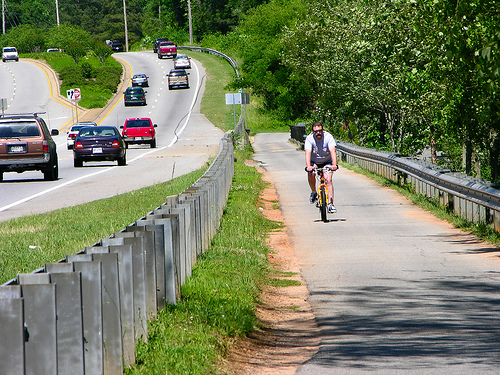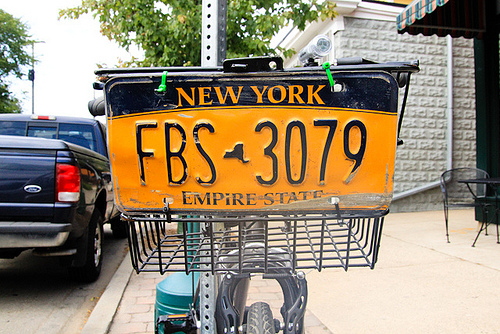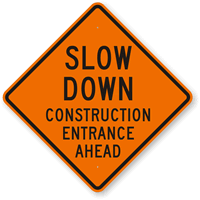Bike registration mooted in Georgia
Biking is becoming more prevalent — and, as some are arguing, more of a problem — in Georgia. In response to driver complaints against the influx in drivers on northern Georgia’s mountainous roads, House Bill 689 would require cyclists to purchase and display on their license a new bike registration, costing $15 annually or $48 for a permanent registration. Without this registration, bikers would potentially face a misdemeanor charge and a $100 fine.

A cyclist in Peachtree City, GA. Image by Tony Bernard.
The bill also prohibits more than four riders per single-file line on roads, provides limits on group rides, and would even allow state and local officials to restrict when and where biking is permitted. Rep. Carl Rogers, Republican of Gainesville introduced the bill, telling the Atlanta Journal-Constitution, “On these narrow mountain roads and on state roads, the traffic can be heavy. The mountain roads have become especially a problem because the [bike] clubs are moving up there.” One complainant echoed, “I live in the north end of the county on a very curvy, beautiful road… I can’t tell you the times I’ve just about had to hit the ditch because of a bicyclist.”
Yet while the measure’s supporters claim that safety is their goal, bike advocates are largely opposed to it. As Atlanta Bicycle Coalition head, and a board member of advocacy group Georgia Bikes, Rebecca Serna, told the Journal-Constitution that the bill would not impact biker or motorist safety, would be challenging to enforce, and would deter people from biking. “If there are streets that are not safe to share, we need to address those streets instead of legislating how hundreds of thousands of people get around,” she said.
Some politicians are also opposed. State Senator Butch Miller, also a Republican of Gainesville, had led legislation in 2012 demanding cyclists ride single-file on most roads. He called the registration fees “ridiculous,” saying that he would support fees only if funds were committed by constitution amendment to bicycle programs. “I would be extremely hesitant to support people registering bicycles… This bill, like any other piece of legislation, requires common sense … and the unintended consequences of something like this could be tremendous.” He suggested improving biker education via shops and biking groups would be a more efficient way of improving safety.
Others were more blunt. Political columnist Jim Galloway of the AJC wrote in an editorial, “The bill draws no distinction between a $3,000 carbon-fiber wonder and a $50 Wal-Mart special with training wheels. And no more passing that outgrown bike to the next kid in line – not without an official transfer of the 4”-by-7” license plate, approved by the government.”

Some are speculating that House Bill 689 is a publicity stunt. Image by Steven Depolo.
Then there was Lt. Gov. Casey Cagle’s reaction: “I’m not interested in getting into a situation where we are taxing and registering our youth and adults for the use of their bicycles… We should be encouraging more people to exercise. And cycling is a part of that.” Cagle is a committed cyclist, and it’s doubtful that the bill will be approved on his watch.
This isn’t the first time bike registration programs have been proposed in the U.S. Several areas in Kansas already require bike registration. New York raised the issue two years ago, with a focus on bike theft prevention, but with little result. San Diego, Long Beach and Los Angeles have passed bike license registration legislation in the past but later repealed it, as bikers weren’t following the law — and the enforcement costs were too high.
Category: Bicycles, Traffic law














